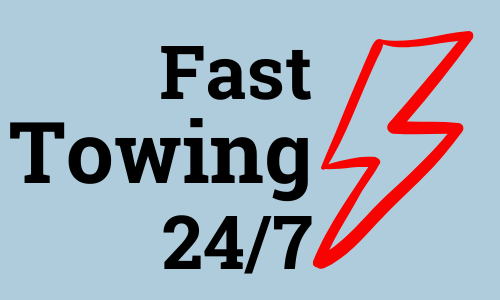Barrasso And Lummis Slam New Biden Administration EV Mandate
U.S. Sens. John Barrasso and Cynthia Lummis have been consistent in opposing President Joe Biden’s energy policies.
On Wednesday, Biden’s Environmental Protection Agency released final rules on new emissions standards for cars, trucks and SUVs aimed at promoting production of electric vehicles.
Administration officials describe the new rules as the most ambitious plan ever to cut emissions from passenger vehicles in its effort to fight climate change.
The rules instead are a thinly veiled attempt to force automakers into building EVs instead of gas-powered vehicles, Barrasso and Lummis said.
“The out-of-touch Biden administration is trying to force Americans into expensive electric vehicles they don’t want, don’t need and can’t afford,” Barrasso said in a press release. “Democrats are already telling Americans what kind of stoves to cook with. Now they want to control every room in your house — even your garage.”
The EPA rule applies to cars, SUVs, vans and pickups — but not 18-wheelers — from 2027 to 2032. It somewhat eases earlier carbon dioxide emissions requirements proposed by Biden through 2030 from its proposal last spring, while essentially maintaining essentially the same end result for 2032.
Under that deadline, gas-powered cars can make up no more than 30% of auto sales by 2032. The rules are not written as an EV mandate or ban on the sale of gas cars, but requires automakers to make a certain amount of very low or zero-emission vehicles that it averages out.
The changes appear aimed at addressing strong industry and auto worker opposition to the accelerated ramp-up of EVs, along with public reluctance to fully embrace the new technology.
But EPA Administrator Michael Regan was adamant to reporters that the new rule is just as strict on pollution as the original proposal.
“Folks, these new standards are so important for public health, for American jobs, for our economy and for our planet," he said.
The United Auto Workers union, which has endorsed Biden, supports the new rule, saying it provides “a path forward for automakers to implement the full range of automotive technologies to reduce emissions.”
Pushback
On Wednesday, Lummis slammed the proposal as dangerous for Western states, where many people rely on gas-powered cars for transportation.
The American Petroleum Institute has said the rule "threatens consumer freedom, energy reliability and national security," while the American Fuel and Petrochemical Manufacturers criticized the EPA for not considering the environmental impact of manufacturing giant batteries or charging EVs.
Will Fight ‘Car Mandate’
The new rule introduced Wednesday slows implementation of stricter pollution standards from 2027 through 2029, after the auto industry called earlier proposed benchmarks unreachable. The rule still ramps up to nearly reach the level the EPA preferred by 2032.
The original ramp-up proposed by the EPA to have 67% of vehicles produced be electric or plug-in hybrids was too fast for the industry to achieve, automakers said. That proposal established an even faster timeline than Biden’s goal of ensuring that EVs account for half of new vehicles in the U.S. by 2030.
Transportation makes up the largest source of U.S. greenhouse gas emissions, and cars and trucks account for more than half of those emissions.
“In Wyoming, we drive larger vehicles longer distances than most other states,” Barrasso said. “We should be able to make our own decisions about what works best for our needs. Republicans will fight to overturn the Biden car mandate and put Americans back in the driver’s seat.”
Electric vehicles are typically more expensive on average than gas vehicles, although the gap has been narrowing and federal tax credits can sometimes make EVs cheaper. In 2023, EV sales made up just under 10% of new car sales.
The rules also call for a reduction in other types of tailpipe pollution. A senior Biden administration official said those pollution regulations will reduce hospitalizations and prevent 2,500 premature deaths in 2055.
The EPA said that under its final rule, the industry could meet the goal if 56% of new vehicle sales are electric by 2032, along with at least 13% plug-in hybrids or other partially electric cars, as well as more efficient gasoline-powered cars that get more miles to the gallon.
The new standards would reduce 7 billion tons of emissions over the next three decades and provide nearly $100 billion in annual net benefits, the EPA said, which include lower health care costs, fewer deaths and more than $60 billion in reduced annual costs for fuel, maintenance and repairs.
House Speaker Mike Johnson, R-Louisiana, called the rule a “misguided electric vehicle mandate” that will force the United States to rely on China and other countries for critical minerals needed for batteries, according to The Associated Press.
The government isn’t requiring people to buy EVs or any other technology, and has argued that there are multiple pathways for companies to comply with the rule.
Hageman’s Perspective
On Wednesday, U.S. Rep. Harriet Hageman voted to support two bills she believes will help restore American energy independence.
The Protecting American Energy Production Act would prevent any president from unilaterally banning fracking. The Restoring American Energy Dominance Act nullifies a BLM proposed rule that would significantly restrict oil and gas production on federal lands.
Hageman has often criticized government officials for what she said are efforts to support green energy initiatives through rules and guidance rather than congressional action.
“I am proud to be an original cosponsor of the Restoring American Energy Dominance Act, and proud to vote in favor of both bills,” Hageman said in a press release. “Since his first day in office, Joe Biden has done everything possible to end oil and gas development and mineral production, which has caused massive increases in energy poverty and reliance on despots and dictators for those resources we need to power our economy.”
Leo Wolfson can be reached at [email protected].
